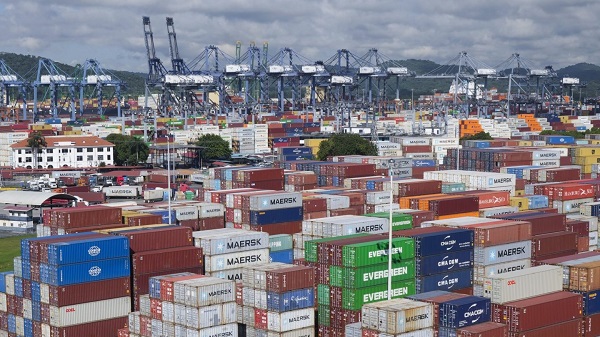Alberta
Unified message for Ottawa: Premier Danielle Smith and Premier Scott Moe call for change to federal policies

United in call for change: Joint statement |
“Wednesday, Alberta’s and Saskatchewan’s governments came together in Lloydminster to make a unified call for national change.
“Together, we call for an end to all federal interference in the development of provincial resources by:
- repealing or overhauling the Impact Assessment Act to respect provincial jurisdiction and eliminate barriers to nation-building resource development and transportation projects;
- eliminating the proposed oil and gas emissions cap;
- scrapping the Clean Electricity Regulations;
- lifting the oil tanker ban off the northern west coast;
- abandoning the net-zero vehicle mandate; and
- repealing any federal law or regulation that purports to regulate industrial carbon emissions, plastics or the commercial free speech of energy companies.
“The federal government must remove the barriers it created and fix the federal project approval processes so that private sector proponents have the confidence to invest.
“Starting with additional oil and gas pipeline access to tidewater on the west coast, our provinces must also see guaranteed corridor and port-to-port access to tidewater off the Pacific, Arctic and Atlantic coasts. This is critical for the international export of oil, gas, critical minerals, agricultural and forestry products, and other resources. Accessing world prices for our resources will benefit all Canadians, including our First Nations partners.
“Canada is facing a trade war on two fronts. The People’s Republic of China’s ‘anti-discrimination’ tariffs imposed on Canadian agri-food products have significant impacts on the West. We continue to call on the federal government to prioritize work towards the removal of Chinese tariffs. Recently announced tariff increases, on top of pre-existing tariffs, by the United States on Canadian steel and aluminum products are deeply concerning. We urge the Prime Minister to continue his work with the U.S. administration to seek the removal of all tariffs currently being imposed by the U.S. on Canada.
“Alberta and Saskatchewan agree that the federal government must change its policies if it is to reach its stated goal of becoming a global energy superpower and having the strongest economy in the G7. We need to have a federal government that works with, rather than against, the economic interests of Alberta and Saskatchewan. Making these changes will demonstrate the new Prime Minister’s commitment to doing so. Together, we will continue to fight to deliver on the immense potential of our provinces for the benefit of the people of Saskatchewan and Alberta.”
Alberta
ChatGPT may explain why gap between report card grades and standardized test scores is getting bigger

From the Fraser Institute
By Paige MacPherson and Max Shang
In Alberta, the gap between report card grades and test/exam scores increased sharply in 2022—the same year ChatGPT came out.
Report card grades and standardized test scores should rise and fall together, since they measure the same group of students on the same subjects. But in Alberta high schools, report card grades are rising while scores on Provincial Achievement Tests (PAT) and diploma exams are not.
Which raises the obvious question—why?
Report card grades partly reflect student performance in take-home assignments. Standardized tests and diploma exams, however, quiz students on their knowledge and skills in a supervised environment. In Alberta, the gap between report card grades and test/exam scores increased sharply in 2022—the same year ChatGPT came out. And polling shows Canadian students now rely heavily on ChatGPT (and other AI platforms).
Here’s what the data show.
In Alberta, between 2016 and 2019 (the latest year of available comparable data), the average standardized test score covering math, science, social study, biology, chemistry, physics, English and French language arts was just 64, while the report card grade 73.3—or 14.5 per cent higher. Data for 2020 and 2021 are unavailable due to COVID-19 school closures, but between 2022 and 2024, the gap widened to 20 per cent. This trend holds regardless of school type, course or whether the student was male or female. Across the board, since 2022, students in Alberta high schools are performing significantly better in report card grades than on standardized tests.
Which takes us back to AI. According to a recent KPMG poll, 73 per cent of students in Canada (high school, vocational school, college and university) said they use generative AI in their schoolwork, an increase from the previous year. And 71 per cent say their grades improved after using generative AI.
If AI is simply used to aid student research, that’s one thing. But more than two-thirds (66 per cent) of those using generative AI said that although their grades increased, they don’t think they’re learning or retaining as much knowledge. Another 48 per cent say their “critical thinking” skills have deteriorated since they started using AI.
Acquiring knowledge is the foundation of higher-order thinking and critical analysis. We’re doing students a deep disservice if we don’t ensure they expand their knowledge while in school. And if teachers award grades, which are essentially inflated by AI usage at home, they set students up for failure. It’s the academic equivalent of a ski coach looking at a beginner and saying, “You’re ready for the black diamond run.” That coach would be fired. Awarding AI-inflated grades is not fair to students who will later struggle in college, the workplace or life beyond school.
Finally, the increasing popularity of AI underscores the importance of standardized testing and diploma exams. And parents knew this even before the AI wave. A 2022 Leger poll found 95 per cent of Canadian parents with kids in K-12 schools believe it’s important to know their child’s academic performance in the core subjects by a fair and objective measure. Further, 84 per cent of parents support standardized testing, specifically, to understand how their children are doing in reading, writing and mathematics. Alberta is one of the only provinces to administer standardized testing and diploma exams every year.
Clearly, parents should oppose any attempt to reduce accountability and objective testing in Alberta schools.
Alberta
How economic corridors could shape a stronger Canadian future

Ship containers are stacked at the Panama Canal Balboa port in Panama City, Saturday, Sept. 20, 2025. The Panama Canals is one of the most significant trade infrastructure projects ever built. CP Images photo
From the Canadian Energy Centre
Q&A with Gary Mar, CEO of the Canada West Foundation
Building a stronger Canadian economy depends as much on how we move goods as on what we produce.
Gary Mar, CEO of the Canada West Foundation, says economic corridors — the networks that connect producers, ports and markets — are central to the nation-building projects Canada hopes to realize.
He spoke with CEC about how these corridors work and what needs to change to make more of them a reality.
CEC: What is an economic corridor, and how does it function?
Gary Mar: An economic corridor is a major artery connecting economic actors within a larger system.
Consider the road, rail and pipeline infrastructure connecting B.C. to the rest of Western Canada. This infrastructure is an important economic corridor facilitating the movement of goods, services and people within the country, but it’s also part of the economic corridor connecting western producers and Asian markets.
Economic corridors primarily consist of physical infrastructure and often combine different modes of transportation and facilities to assist the movement of many kinds of goods.
They also include social infrastructure such as policies that facilitate the easy movement of goods like trade agreements and standardized truck weights.
The fundamental purpose of an economic corridor is to make it easier to transport goods. Ultimately, if you can’t move it, you can’t sell it. And if you can’t sell it, you can’t grow your economy.
CEC: Which resources make the strongest case for transport through economic corridors, and why?
Gary Mar: Economic corridors usually move many different types of goods.
Bulk commodities are particularly dependent on economic corridors because of the large volumes that need to be transported.
Some of Canada’s most valuable commodities include oil and gas, agricultural commodities such as wheat and canola, and minerals such as potash.
CEC: How are the benefits of an economic corridor measured?
Gary Mar: The benefits of economic corridors are often measured via trade flows.
For example, the upcoming Roberts Bank Terminal 2 in the Port of Vancouver will increase container trade capacity on Canada’s west coast by more than 30 per cent, enabling the trade of $100 billion in goods annually, primarily to Asian markets.
Corridors can also help make Canadian goods more competitive, increasing profits and market share across numerous industries. Corridors can also decrease the costs of imported goods for Canadian consumers.
For example, after the completion of the Trans Mountain Expansion in May 2024 the price differential between Western Canada Select and West Texas Intermediate narrowed by about US$8 per barrel in part due to increased competition for Canadian oil.
This boosted total industry profits by about 10 per cent, and increased corporate tax revenues to provincial and federal governments by about $3 billion in the pipeline’s first year of operation.
CEC: Where are the most successful examples of these around the world?
Gary Mar: That depends how you define success. The economic corridors transporting the highest value of goods are those used by global superpowers, such as the NAFTA highway that facilitates trade across Canada, the United States and Mexico.
The Suez and Panama canals are two of the most significant trade infrastructure projects ever built, facilitating 12 per cent and five per cent of global trade, respectively. Their success is based on their unique geography.
Canada’s Asia-Pacific Gateway, a coordinated system of ports, rail lines, roads, and border crossings, primarily in B.C., was a highly successful initiative that contributed to a 48 per cent increase in merchandise trade with Asia from $44 million in 2006 to $65 million in 2015.
China’s Belt and Road initiative to develop trade infrastructure in other countries is already transforming global trade. But the project is as much about extending Chinese influence as it is about delivering economic returns.

Piles of coal awaiting export and gantry cranes used to load and unload containers onto and from cargo ships are seen at Deltaport, in Tsawwassen, B.C., on Monday, September 9, 2024. CP Images photo
CEC: What would need to change in Canada in terms of legislation or regulation to make more economic corridors a reality?
Gary Mar: A major regulatory component of economic corridors is eliminating trade barriers.
The federal Free Trade and Labour Mobility in Canada Act is a good start, but more needs to be done at the provincial level to facilitate more internal trade.
Other barriers require coordinated regulatory action, such as harmonizing weight restrictions and road bans to streamline trucking.
By taking a systems-level perspective – convening a national forum where Canadian governments consistently engage on supply chains and trade corridors – we can identify bottlenecks and friction points in our existing transportation networks, and which investments would deliver the greatest return on investment.
-

 Frontier Centre for Public Policy2 days ago
Frontier Centre for Public Policy2 days agoRichmond Mayor Warns Property Owners That The Cowichan Case Puts Their Titles At Risk
-

 Business2 days ago
Business2 days agoMark Carney Seeks to Replace Fiscal Watchdog with Loyal Lapdog
-

 Business2 days ago
Business2 days agoSluggish homebuilding will have far-reaching effects on Canada’s economy
-

 COVID-191 day ago
COVID-191 day agoMajor new studies link COVID shots to kidney disease, respiratory problems
-

 Business2 days ago
Business2 days agoP.E.I. Moves to Open IRAC Files, Forcing Land Regulator to Publish Reports After The Bureau’s Investigation
-

 International1 day ago
International1 day agoState Department designates European Antifa groups foreign terror organizations
-

 Energy2 days ago
Energy2 days agoCanada’s oilpatch shows strength amid global oil shakeup
-

 International1 day ago
International1 day agoBondi and Patel deliver explosive “Clinton Corruption Files” to Congress











